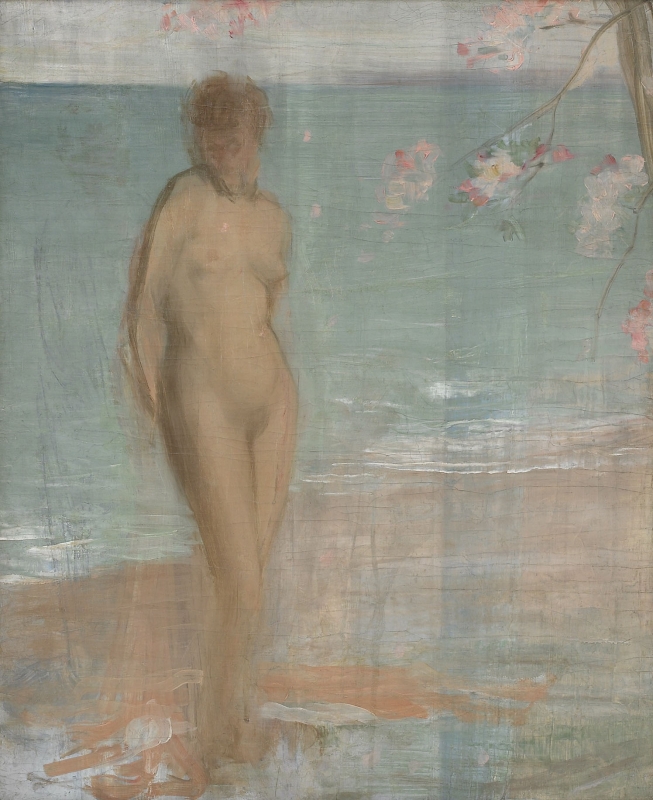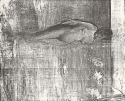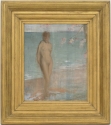Home > Catalogue > Browse > Venus Rising from the Sea << >>
Composition
It was painted over a seascape or river scene, just visible with the canvas turned sideways (and seen in the infrared image above). The seascape could have been of the type Whistler was working on at Trouville in the autumn of 1865, such as Harmony in Blue and Silver: Trouville [YMSM 064]Sea and Rain [YMSM 065], Blue and Silver: Trouville [YMSM 066], and Green and Grey. Channel [YMSM 069].
On the other hand, the canvas is the same size as Nocturne: Blue and Silver - Chelsea [YMSM 103], which is signed and dated 1871. It is known that Whistler re-used canvases, and indeed a figure subject, possibly related to the 'Six Projects', is known to exist under Nocturne: Blue and Silver - Cremorne Lights [YMSM 115].
One of the surviving 'Six Projects', Venus [YMSM 082], also shows a nude Venus with a background of water.
Technique
There are numerous signs of alterations to both sides of the figure. At one time she was much further to the left, and possibly surrounded by drapery. The position of both her arms, legs, and the angle of her head, have all been changed several times. It is thinly painted with brushes and scraped with brush and palette knife. At left, a broad stroke of brown outlines the arm and thigh.
Conservation History
According to Freer Gallery conservation files, it was in poor condition in 1921, the canvas broken and relined, with much poor inpainting; it was cleaned, repaired and retouched. In the following year it was cleaned and resurfaced. In 1942 it was again resurfaced and in 1949, retouched, cleaned and resurfaced; cleaned and surfaced in 1951. The surface still shows large areas of cracking and abrasions.
Frame
The Grau-style frame has the label of Newman, Soho Square, London, on the stretcher. 1 The frame is seen above in a 1909 photograph, being admired by C. L. Freer, and in a recent photograph. 2
Last updated: 24th October 2020 by Margaret










